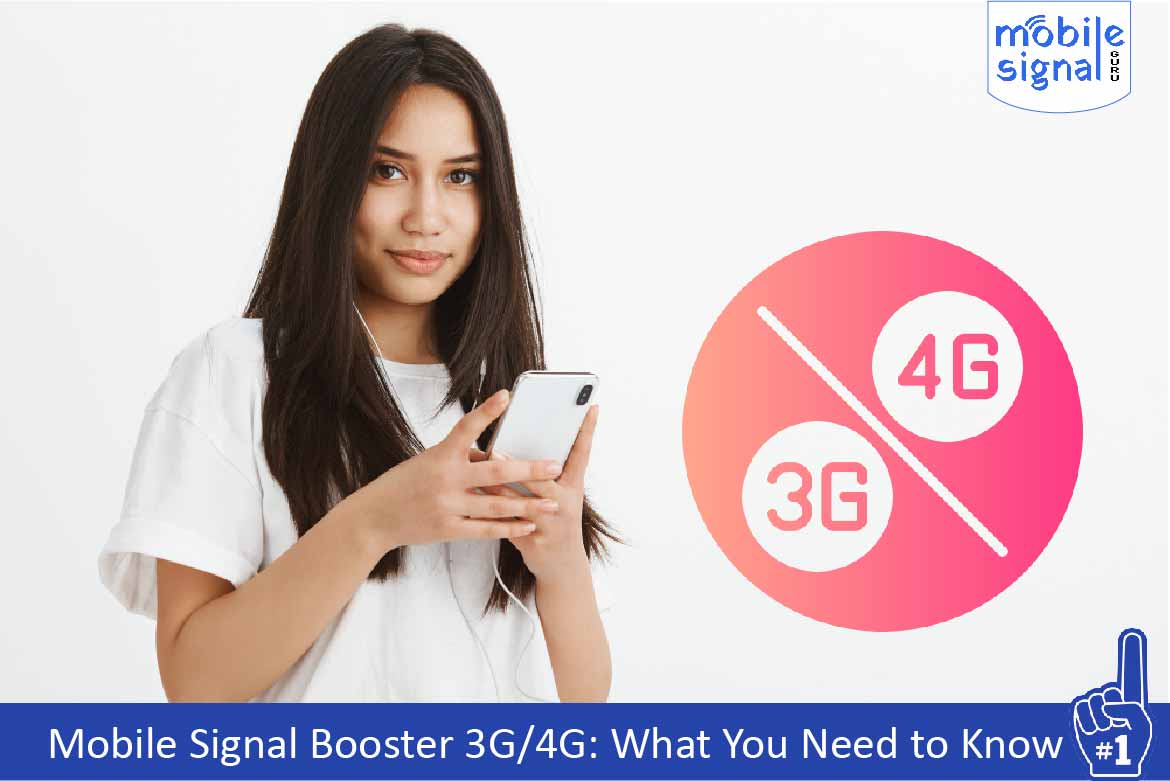In today’s fast-paced world, staying connected is essential. However, many people face issues with weak mobile signals, especially in remote areas, buildings with thick walls, or even some urban locations. A 3G/4G mobile signal booster can help improve your connection. In this guide, we’ll explore everything you need to know about mobile signal boosters and how they work.
What is a Mobile Signal Booster?
A mobile signal booster is a device that strengthens weak mobile signals. It improves voice calls and data speeds by amplifying the available signals from nearby cell towers. This device consists of three main parts: an external antenna, an amplifier, and an internal antenna. The external antenna captures weak signals, the amplifier boosts the signal strength, and the internal antenna redistributes the improved signal inside your home, office, or vehicle.
How Do Mobile Signal Boosters Work?
Signal boosters capture weak 3G/4G signals and enhance them. Here’s how it works step-by-step:
- Signal Detection: The external antenna picks up the weak signal from the nearest cell tower.
- Signal Amplification: The amplifier increases the signal strength.
- Signal Redistribution: The internal antenna rebroadcasts the boosted signal inside the building or vehicle.
This process helps improve voice call quality, data speeds, and reduces call drops.
Why Do You Need a 3G/4G Mobile Signal Booster?
Many people experience poor mobile connectivity, which can lead to frustration. Here’s why you might need a signal booster:
- Weak Signal in Remote Areas: If you live in a remote or rural area, a mobile booster can provide you with a stable connection.
- Thick Walls or Building Materials: Some buildings have materials that block signals, such as concrete or metal. A signal booster can bypass this issue.
- Frequent Traveling in Vehicles: Boosters can work in cars, allowing for better connectivity on the road.
- Business Needs: For those running businesses from home or office, consistent communication is crucial.
Using a signal booster can greatly improve your connectivity and ensure you stay connected wherever you are.
Types of Mobile Signal Boosters
Mobile signal boosters are designed for different needs and locations. Here are the common types:
- Home or Office Boosters: Ideal for indoor use, these boosters cover various ranges and are suitable for homes or offices.
- Vehicle Boosters: Designed for cars, trucks, or boats, these boosters help improve signal strength on the move.
- Commercial Boosters: Used for larger buildings or warehouses, these boosters provide strong signals over a wide area.
Each type serves specific needs, so it’s essential to choose the one that fits your environment and requirements.
Common Causes of Weak Mobile Signals
Understanding why mobile signals are weak in certain areas can help you decide if a signal booster is the right solution. Here are a few common reasons:
- Distance from Cell Towers: If you’re far from a cell tower, the signal strength weakens.
- Natural Obstructions: Trees, hills, and mountains can block signals.
- Weather Conditions: Rain, snow, and storms can interfere with signal quality.
- Interference from Other Signals: Devices like routers or electronic appliances may cause signal interference.
By knowing these causes, you can assess if a signal booster is suitable for your location.
How Mobile Signal Boosters Differ from Wi-Fi Boosters
It’s common to confuse mobile signal boosters with Wi-Fi boosters, but they serve different purposes:
- Mobile Signal Boosters: Enhance cellular network signals for calls and data (3G, 4G, LTE).
- Wi-Fi Boosters: Amplify the Wi-Fi network signal from your router for internet access only.
If your issue is with mobile connectivity, a signal booster is the right choice. For Wi-Fi connectivity, a Wi-Fi booster is the better option.
Understanding Different Frequency Bands
Mobile signal boosters work on specific frequency bands, which differ by carrier and country. Here are some common bands:
- 700 MHz: Provides extensive coverage and is common for 4G LTE.
- 850 MHz: Known for strong penetration through walls and buildings.
- 1900 MHz and 2100 MHz: Typically used for 3G and 4G data.
Before purchasing, check which bands your carrier uses, as a mismatch may lead to poor performance.
Limitations of Mobile Signal Boosters
While signal boosters are highly effective, there are some limitations to be aware of:
- Dependent on External Signal: Boosters can only amplify an existing signal. If there is no signal at all, a booster cannot create one.
- Installation Requirements: Some models require proper installation and positioning for optimal performance.
- Potential Interference: Boosters may occasionally interfere with other wireless signals if not installed correctly.
Being aware of these limitations will help you set realistic expectations from your signal booster.
Eco-Friendly Advantages of Mobile Signal Boosters
Mobile signal boosters can contribute to reducing environmental impacts:
- Reduced Energy Consumption: Phones require more power to maintain weak connections. By improving signal strength, boosters can help conserve battery life.
- Longer Device Lifespan: Consistent connectivity reduces wear and tear on mobile devices, potentially extending their lifespan.
Choosing a signal booster with eco-friendly benefits supports sustainable technology use.
Benefits of Using a Mobile Signal Booster
Using a mobile signal booster can bring several advantages:
- Improved Call Quality: Say goodbye to dropped calls or poor voice quality.
- Faster Data Speeds: Boosters enhance 3G and 4G data speeds, making browsing and streaming smoother.
- Extended Battery Life: Phones use less power when receiving strong signals, so a booster can help your battery last longer.
- Enhanced Connectivity on the Go: Vehicle boosters keep you connected while traveling, making road trips more enjoyable.
By using a signal booster, you can experience reliable and fast connectivity anytime and anywhere.
Key Features to Look for in a Signal Booster
Choosing the right signal booster can be overwhelming. Here are some key features to consider:
- Coverage Area: Select a booster that can cover the space you need. Small homes might need a different model than large offices.
- Carrier Compatibility: Check that the booster is compatible with your mobile carrier and supports 3G or 4G bands.
- Gain Strength: This refers to the amplifier’s power. Higher gain means a stronger boost.
- Ease of Installation: Many boosters are plug-and-play, but some may need professional installation.
- FCC Approval: Make sure the booster is certified by regulatory bodies for safe and legal use.
These features ensure you choose a reliable, high-performance booster that meets your needs.
How to Install a Mobile Signal Booster
Installing a mobile signal booster is generally easy. Here’s a quick guide:
- Place the External Antenna: Mount the external antenna outside, ideally on the roof, where the signal is strongest.
- Connect to the Amplifier: Attach the antenna to the amplifier using the provided cables.
- Set Up the Internal Antenna: Place the internal antenna in a central location inside the building or vehicle.
- Power On the System: Plug in the amplifier and turn it on. The booster should start working right away.
For large or complex installations, you may need professional help to ensure optimal performance.
How to Choose the Right Signal Booster for Your Needs
When choosing a mobile signal booster, keep your specific needs in mind. Consider these factors:
- Location: Whether it’s for your home, office, or vehicle.
- Signal Strength: Choose a booster based on the level of weak signal you experience.
- Budget: Boosters come at various price points. Find one that fits your budget while meeting your needs.
- Coverage Area: Ensure the booster you select can cover your entire space.
Selecting the right booster can make a noticeable difference in your signal quality.
Legal and Regulatory Considerations
Before purchasing a signal booster, it’s important to know the legal requirements:
- FCC Certification: In the United States, the FCC requires all signal boosters to be certified. Look for boosters labeled “FCC-approved.”
- Carrier Registration: Some carriers require you to register your booster for proper use.
- Power Limits: Ensure your booster follows power regulations to avoid interfering with other networks.
Checking these points helps you choose a compliant, high-quality device.
How to Maintain Your Mobile Signal Booster
To keep your mobile signal booster working effectively, follow these maintenance tips:
- Check Cable Connections: Loose cables can reduce the signal booster’s effectiveness.
- Regularly Clean the Antennas: Dust and debris on antennas may affect signal quality.
- Avoid Overheating: Keep the booster in a well-ventilated area to prevent overheating.
Proper maintenance helps prolong the life of your signal booster and ensures consistent performance.
DIY vs. Professional Installation: Which is Better?
Some boosters are easy to install on your own, while others require professional setup. Here’s a breakdown:
- DIY Installation: Great for small or personal boosters, with straightforward setup.
- Professional Installation: Recommended for larger boosters, such as commercial-grade units, to ensure optimal placement and performance.
For large spaces or challenging locations, consider professional installation for the best results.
Understanding the Warranty and Return Policy
Before purchasing a mobile signal booster, review the warranty and return policy:
- Warranty: Most reputable boosters come with a 1-3 year warranty. A longer warranty period indicates better product quality.
- Return Policy: Many manufacturers offer a trial period (often 30 days). If the booster doesn’t meet your needs, a return policy ensures peace of mind.
These policies reflect the manufacturer’s confidence in the product and provide a safeguard for your investment.
Troubleshooting Common Signal Booster Issues
Even high-quality boosters may encounter occasional issues. Here are common problems and solutions:
- Weak Signal Indoors: Check the position of the external antenna. Moving it higher or repositioning can help.
- Intermittent Connectivity: Inspect the cable connections or reset the amplifier to refresh signal reception.
- Poor Signal During Bad Weather: Temporary issues may arise during storms. If persistent, adjust the antenna position after the weather clears.
Simple troubleshooting can resolve many common issues, improving your signal booster’s reliability.
Future of Mobile Signal Boosters: 5G Compatibility
With 5G networks expanding, many people wonder if current boosters will support 5G. Here’s what to know:
- Some Boosters are 5G-Ready: New models can boost low-band 5G signals (such as those under 6 GHz).
- Dual-Functionality: Some boosters can support both 4G LTE and low-band 5G frequencies, making them future-ready.
If you’re in an area with 5G, consider investing in a booster that supports it for future-proof connectivity.
Frequently Asked Questions (FAQs)
1. Can a mobile signal booster work with any mobile carrier?
Yes, but ensure the booster supports the specific frequency bands of your carrier.
2. Will a signal booster increase my internet speed?
Yes, it can improve data speeds by enhancing the 3G or 4G signal strength.
3. Can I install the booster myself?
Most boosters are easy to install. However, larger systems might need professional help.
4. Do signal boosters work in rural areas?
Yes, signal boosters are very effective in rural areas with weak signals.
5. Are signal boosters safe to use?
Yes, certified boosters are safe and follow regulatory guidelines.
Conclusion
A mobile signal booster is a reliable solution for poor signal issues, whether at home, in the office, or on the road. By understanding how they work, the benefits they offer, and how to choose the right one, you can make an informed decision. Boosters enhance voice calls, increase data speeds, and ensure that you stay connected no matter where you are.
Investing in a quality 3G/4G mobile signal booster can make a huge difference in your daily communication experience. Make sure to choose one that fits your needs, complies with regulations, and delivers the connectivity you require.
 Australia (AUD)
Australia (AUD) Denmark (DKK)
Denmark (DKK) France (EUR)
France (EUR) Germany (EUR)
Germany (EUR) Ireland (EUR)
Ireland (EUR) Malta (EUR)
Malta (EUR) Netherlands (EUR)
Netherlands (EUR) New Zealand (NZD)
New Zealand (NZD) Norway (NOK)
Norway (NOK) Spain (EUR)
Spain (EUR) Sweden (SEK)
Sweden (SEK) UAE (AED)
UAE (AED) United Kingdom (GBP)
United Kingdom (GBP)
